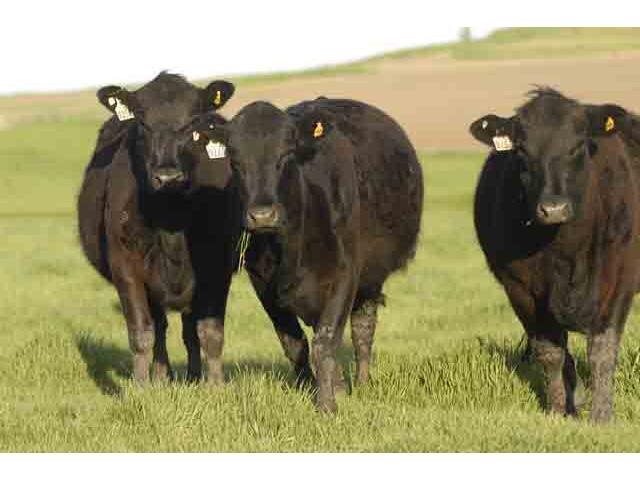Ask the Vet
Score and Cull on Udder Condition
READER QUESTION:
I have a young cow, on her second calf. She has an ugly udder and two overly large teats. The calf is doing fine, but he won't suck on those two teats. Disposition-wise, the cow is a little high-strung, and I have problems milking those teats out. What are your thoughts?
DR. MCMILLAN'S ANSWER:
This cow has a condition commonly called "balloon teats." Teat and udder quality is a major problem. It is a top-four reason for culling cows in the U.S. The Beef Improvement Federation (BIF) has a teat and udder scoring system to help producers make culling decisions. Here is the link to that information: http://beef.unl.edu/….
P[L1] D[0x0] M[300x250] OOP[F] ADUNIT[] T[]
A cow's udder is an amazing structure. It is not an inverted sippy cup. At the end of the teat is a complex structure called the "street canal." This is a complex, one-way valve that releases milk to the calf, but keeps infectious organisms out. A large metal "teat needle," sometimes used to milk out in these cases, can introduce these infectious organisms into the teat and udder. Even worse, these needles can temporarily or permanently damage the street canal and make the udder much more vulnerable to infections.
In a few exceptional occasions when I could not milk out a teat, I have used a much smaller, single-use sterile plastic cannula to drain a teat or teats. In some of these cases, the calf has been able to begin nursing the teat afterward. But it's important to note the condition will recur with the next calf, and it will usually be worse.
This condition significantly reduces milk production and, correspondingly, the weaning weight of the calf. There is also a very real chance the calf will not receive adequate colostrum, which affects performance even into the feedlot. In the worst-case scenario, the weaning weight is reduced to zero -- due to death.
I advise you sell this cow and cast a questioning eye to her dam and sire. This is not something you want in your herd.
**
Editor's Note:
Please contact your veterinarian with questions pertaining to the health of your herd or other animals. Every operation is unique, and the information in this column does not pertain to all situations. This is not intended as medical advice but is purely for informational purposes.
Write Dr. Ken McMillan at Ask the Vet, 2204 Lakeshore Dr., Suite 415, Birmingham, AL 35209, or email vet@progressivefarmer.com.
(c) Copyright 2022 DTN, LLC. All rights reserved.






